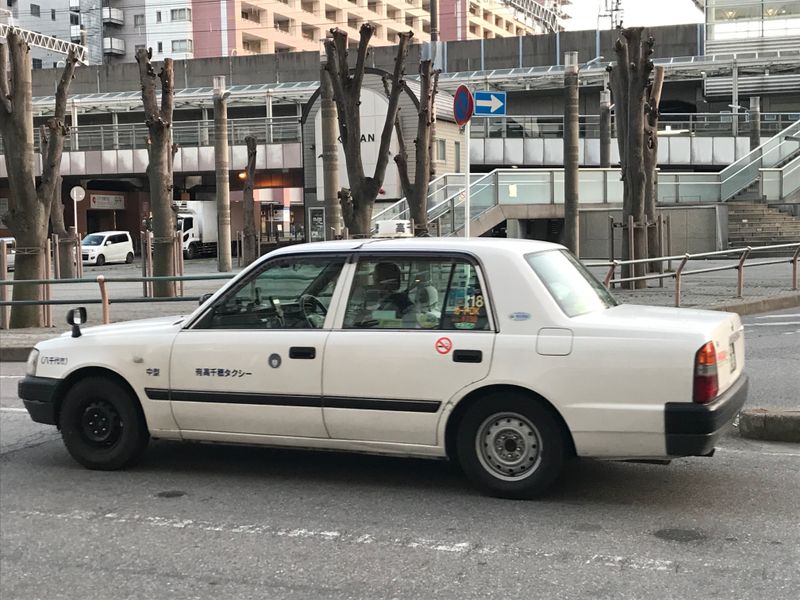Feb 1, 2018
How to call for a cab in Japan
Japanese is a difficult language to learn (in my experience, that is), especially if the language that you are accustomed to uses the Roman alphabet. However, in performing some simple tasks, learning how to read and write in hiragana, katakana and kanji is sometimes not necessary. Learning how to say some words in Nihonggo is quite essential, though.
When you are a foreigner living in Japan, you will most likely do a lot to travelling - domestic or international. And while it is somewhat easy to navigate the public transport system in this country, if you've got some luggage with you, you'll most likely go for the most comfortable way to get to the train station or airport - by taxi.
You are lucky if you can quickly ask someone to hail a cab for you every time you need one, but what if you don't? It is then important that you can call a taxi by yourself. Don't worry; it's not as hard as you think it is. Don't be like me. I was a total nervous freak when I attempted to hail a cab on my own the first time.

Before attempting, there are some basic Nihonggo terms that you have to learn first:
1. How to say the numbers in Japanese:
1 - ichi
2 - ni
3 - san
4 - shi
5 - go (short o sound only, not "go" in English)
6 - roku
7 - shichi or nana
8 - hachi
9 - kyu
10 - ju
2. The correct quantifiers for each objects. In the case of cars, especially taxis, the correct quantifier is "dai". So now it becomes:
1 car - ichi dai
2 cars - ni dai
…and so on.
3. How to state your name as read in the katakana version.
Usually the first thing you will obtain once you set foot here in Japan to live and work is the katakana version of your name. That is usually required when you get your first health insurance card, and it is important that you master writing it in katakana as it will be useful for you later on.
It is also equally important, especially when hailing a cab, that you can properly pronounce your name in katakana (which will most likely be different from how you really pronounce your name). Don't worry; just saying your last name is usually enough.
4. How to state your complete address. In my experience, most of the times where I need to hail a cab are when I'm going to the shuttle bus station that would take me to the airport.
Now you are ready to hail a cab. At this point I will assume that you already know the phone number of the cab dispatch company in your area. If you don't have it yet, I believe you can get that information at your city hall.
1. Once the operator picks up your call, say the number of cars that you would need, and end it with "onegaishimasu". For example: "Ichi dai onegaishimas." (one car please)
2. The operator will ask for your name, so you'll probably hear "Onamae wa?" or if they are truly polite, "Onamae, onegaishimasu." State your name as pronounced in katakana. Again, your last name is usually enough.
3. State your address or current location. It will help if you can give the dispatch company some landmarks, but it's not usually necessary. Just your address is enough. If you live in a condominium or an apartment building, no need to state your room number.
4. Listen to the operator. Usually they will say how far out (in minutes) their closest cab is to your location. In Nihonggo, minutes is "hun" or "pun", depending on the number that precedes it. So you might hear "go hun" (5 minutes) or "san pun" (3 minutes) from them. What it all means is you only have those number of minutes to get to the front of your building and wait for your cab to arrive.
5. Once the cab arrives, DO NOT open the cab door. Well, that is because you don't have to. The passenger door automatically opens and closes for you. If you've got luggage, the trunk will open first just before the cab driver gets out of the car to assist you with the bags. After he's done with your bags, he will immediately go into the car to open the passenger door from the inside. You also don't have to close the door once you are in; it will also automatically close.
6. Once in the cab, state the destination address or name in Japanese; if you can't, have the address written out for you beforehand and show it to the cab driver. Again, end your sentence with "onegaishimasu".
Simple, isn't it? Now why don't you give it a try. I'll rather not wish you to have fun hailing a cab, as you might have too much fun, do it a lot, and it will definitely cost you - a flag-down rate of 730 yen (in Tokyo) is no joke!
Nonetheless, good luck!



0 Comments